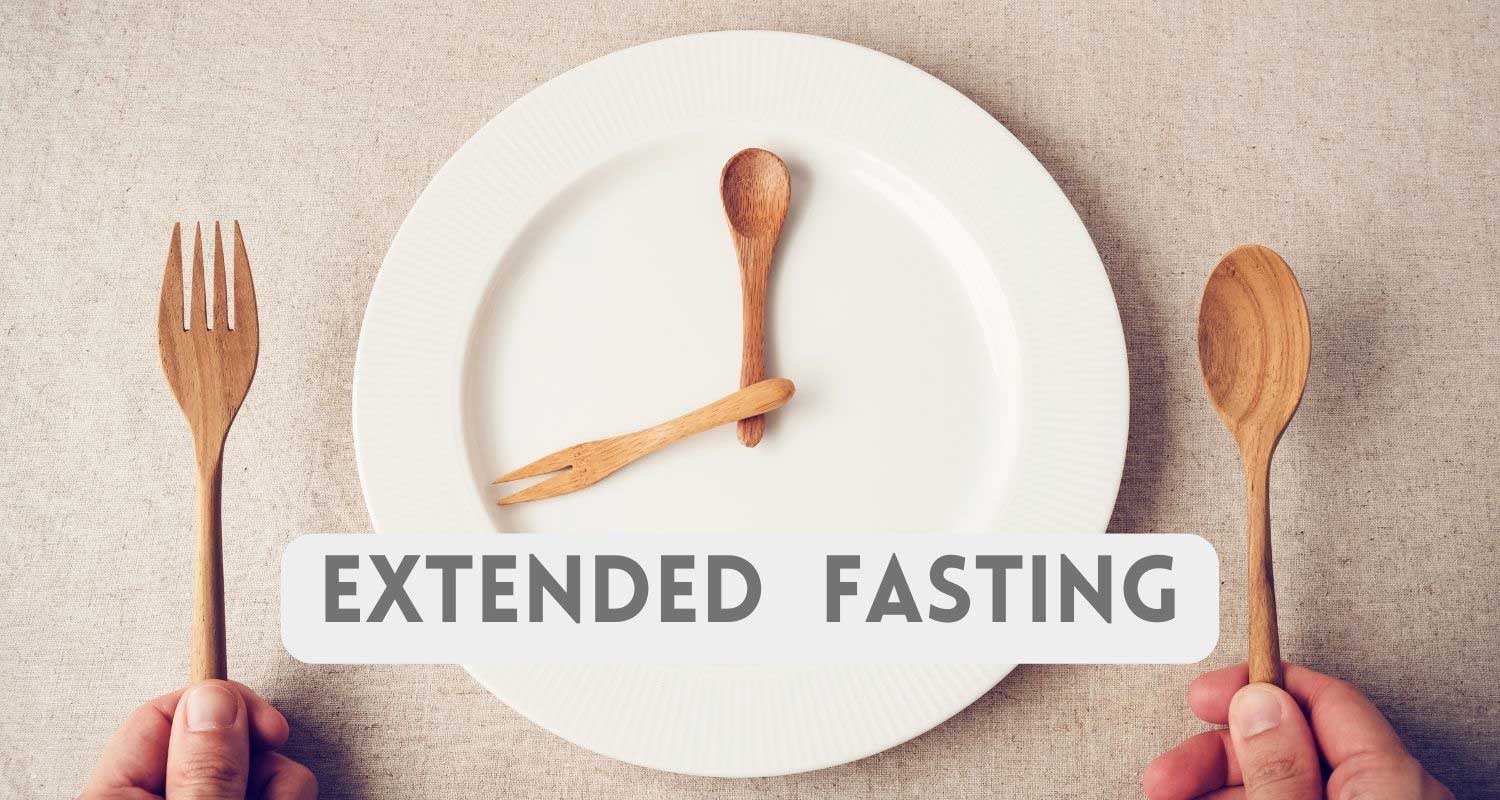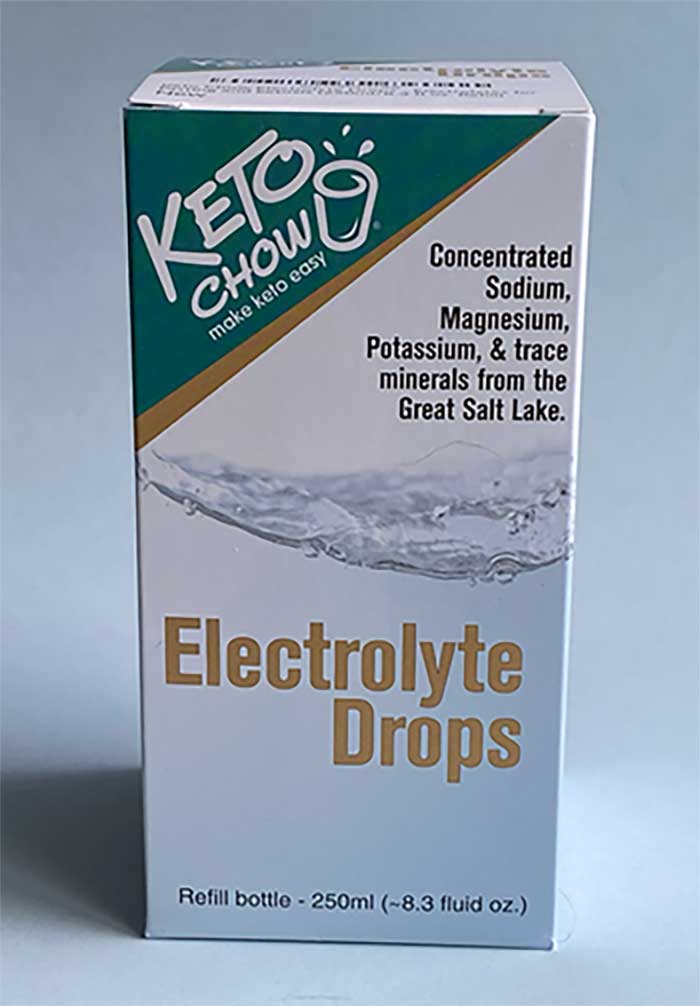Extended Fasting
 Blog image created with Canva
Blog image created with Canva
Disclaimer: Before attempting an extended fast, talk to your medical provider.
I was talked into fasting by a friend. Extended fasting that is. I have long adopted daily intermittent fasting, but shied away from longer fasts.
When I started Keto, I thought fasting was crazy. Why were people starving themselves? Seven months into my keto journey with a great A1c, I was not able to get off insulin. I didn't particularly care though, until I learned that despite my great control, shockingly, I was still at great risk of complications.
Luckily, I learned that daily intermittent fasting was the answer. Dr. Jason Fung, a nephrologist from Toronto wrote a book about it - The Obesity Code. In his series on The Aetiology of Obesity, he explains how fasting improves insulin sensitivity. The videos from this series are linked in my blog about Modified Alternate Day Fasting.
Being fat adapted, made fasting easy. Fat adapted means that the body effortlessly switches fuel sources from burning glucose to burning ketones made from fat. Every time that happens, it also accelerated weight loss. But most importantly and surprisingly, it got me off insulin in just 2 weeks. Mission accomplished. I vowed I would never go back on insulin.
I kept up with daily fasts, basically skipping breakfast and no snacking. I stuck to the routine to keep my glucose levels and A1C low (4.8 %).
A little over a year ago I tried alternate day fasting (AFD). ADF is eating every other day. That didn't go so well. I almost passed out after a week, and I had no ambition to ever try a longer fast again. Almost passing out was no fun.
By this time I had lost a total of 111 pounds. I surrendered to the idea of having skin reduction surgery, because the excess skin wasn't going to remove itself. Autophagy goes only so far, especially at my age. Two things happened. A discussion about the surgery in the group reminded me of the benefits of autophagy and a friend talked to me about how incredible healthy extended fasting was. He didn't really talk me into fasting, but he planted the seed. It sounded very appealing. This was followed by a stressful night, a midnight meal, and the realization, that it might be a good idea to stop eating for a while.
Well, there were two reasons.
- My continued struggle with looking too deep into keto treats. These treats got the better of me. I feared losing control, and my head needed a really good shake to shift my mindset back on track.
- I had an upcoming podcast with Low Carb MD Podcast and felt bloated. I didn't just feel bloated, I was puffed up. The podcast was going to be recorded with video. So I needed to get my sh*t together.
With the midnight meal still weighing heavy on my mind and stomach, I decided to go for a minimum fast of 48 hours. Then I would regroup and see how I felt. Actually a little longer, because I started my fast in the middle of the night.
I didn't feel hungry. Being fat adapted, my body ramped up ketone production. I felt exhilarated, satiated and content. Even falling asleep on an empty stomach at night was no problem. I was sure this was going to be great.
To be honest, I was kind of clueless how to fast. Of course I understood not to eat, but I also wanted to make sure I would not pass out. My theory was, that my electrolyte levels were out of whack up during my first ADF. That caused a sudden drop in blood pressure, which in turn caused me to almost pass out. Actually I had to lie flat on the kitchen floor in order to not pass out. To prevent that from happening again, I added 1/4 teaspoon of Redmond's Real Salt to a cup of water three times a day. I also added some Calm Magnesium.
In the middle of the night I woke up from a terrible migraine. I get these with weather changes. We did have a dramatic temperature swing. Another problem might have been, that I didn't drink any coffee on day 1.
I added 2 cups of black coffee to my daily regimen. To the coffee I added 2 splashes of Keto Chow electrolytes, I kept drinking 3 cups of water with Redmond's Real Salt and water throughout the day.
Another thing I learned from my nearly pass out episode was that I probably pushed too much water. This caused me to flush out electrolytes. Drinking excess water has become one of my pet peeves. After listening to doctors talking about dry fasts, I figured that too much water was not helpful. So, this time I made sure to let my thirst guide me.
I was still not hungry. All day I felt like I had eaten half an hour prior. Content, actually a little full. I could feel my ketone levels increasing. This is an amazing feeling of a surge of energy coupled with mental clarity.
At suppertime, one of my lovely children ate a store bought pizza next to me. This brought on my first hunger pang. I could claim super human willpower, but the truth is, I was just too stubborn. I did not want to give in. The hunger quickly went away. The night passed without migraine. I believed that longer fasts could cause migraines for me, but I didn't get another migraine. Not until the last day.
This is the day I thought I was going to go for a week. I felt indestructible. Admittedly, my daily workouts felt a little more demanding. Nothing serious, I am just lifting some weights, but I couldn't do as many reps as in the pre-fasting days.
That night my lovely husband cooked a Greek dish. The house smelled of garlic. I love garlic, but can no longer eat it due to autoimmune issues, so this was a bit of a struggle. My competitive nature pulled me through this one. Again, I didn't feel this was a matter of willpower.
I started feeling super human. Those mere mortals that rely on food, we are not the same. I worked on projects with pristine mental clarity. I really should have used the time to write a book, but needed to get backed up work out of the way. Nothing could faze me. Everyone around, me munching and snacking, I couldn't care less.
By nightfall I started feeling off. I couldn't explain it then, but in hindsight it was an aura. I was feeling an upcoming migraine. Because I couldn't make sense of it at the time, I felt I should end the fast the next day.
So, this was the day, I was going to break my fast. Another extreme temperature swing (flash freeze waring) gave me a horrible migraine. I felt good about ending the fast, but the in same way I hadn't prepared for my fast, I never gave breaking the fast much thought.
I asked for help in a few Facebook groups including our own. Obviously bone broth was the best option, but bone broth needs to cook for 24 hours. I did not want to wait that long. One good suggestion was beef broth, but I feared it would be too fatty and make me feel miserable. I settled on homemade chicken broth from slow cooking chicken breasts. This was so delicious. As I type this, just thinking of that broth, makes my mouth start watering. I added salt, pepper and TrueLemon.
I was warned to stay close to the bathroom, because my first food intake could get things going in a rather explosive way. Luckily, there were no unpleasant surprises.
- Regarding my struggle it is a little early to say whether I am back in control. But so far I feel that way. Feeling satiated is enough again. I don't crave treats or the urge to snack, don't want to eat despite not being hungry. My mindset shifted, back into gear.
- The Low Carb MD Podcast went fantastic. I was no longer bloated and puffed up. I dropped 10 pounds in five days. I am certain that I will regain some of the weight, but the extra water weight I retained before the fast, might not come back.
- I no longer fear extended fasts. There wasn't a single time that I felt dizzy. I know how to keep myself safe.
- I got a lot of work done. The energy was insane.
I highly recommend using the fasting app Life.
Life for iOS
Life for Android
https://lifeapps.io/fasting/the-5-stages-of-intermittent-fasting/
- By 12 hours, you've entered the metabolic state called ketosis (Anton et al., Obesity 2018). In this state, your body starts to break down and burn fat.
- By 18 hours, you've switched to fat-burning mode and are generating significant ketones (Anton et al., Obesity 2018).
- Within 24 hours, your cells are increasingly recycling old components and breaking down misfolded proteins linked to Alzheimer's and other diseases (Alirezaei et al., Autophagy 2010). This is a process called autophagy.
- By 48 hours without calories or with very few calories, carbs or protein, your growth hormone level is up to five times as high as when you started your fast (Hartman et al.,1992).
- By 54 hours, your insulin has dropped to its lowest level point since you started fasting and your body is becoming increasingly insulin-sensitive (Klein et al., 1993).
- By 72 hours, your body is breaking down old immune cells and generating new ones (Cheng et al., 2014).
These benefits are amazing. Now, that I know I can safely fast, I will be doing this on a regular basis. Four days seems a good number for maximum benefit. We will be doing a regular fasting challenge in our Facebook group.
Final thought: Shift your mindset from "I can't do that" to "I might, if I try". The rewards will be infinite.
Written by Roxana Soetebeer
Published: February 26th, 2022
Dr. Jason Fun MD
Jimmy Moore

Complete Guide To Fasting (Heal Your Body Through Intermittent, Alternate-Day, and Extended Fasting)
Dr. Jason Fun MD
Jimmy Moore

The Obesity Code - Unlocking the Secrets of Weight Loss (Book 1)
Dr. Jason Fung, Eve Mayer, Megan Ramos

Life in the Fasting Lane: How to Make Intermittent Fasting a Lifestyle - and Reap the Benefits of Weight Loss and Better Health
Ancient Sea Salt

Redmond's Real Salt
Ancient Sea Salt

Redmond's Real Salt - 3 Pack

